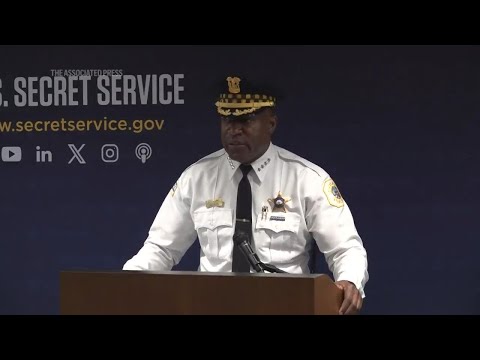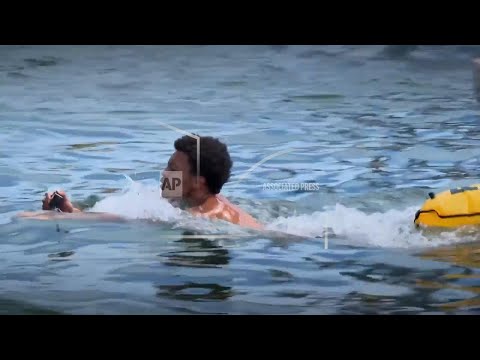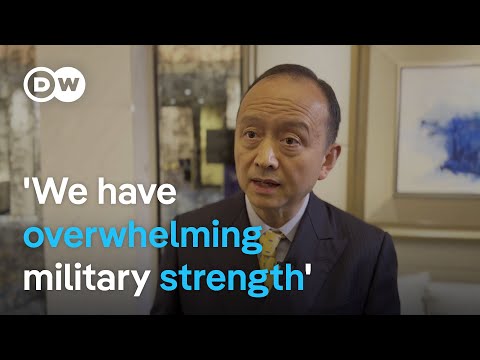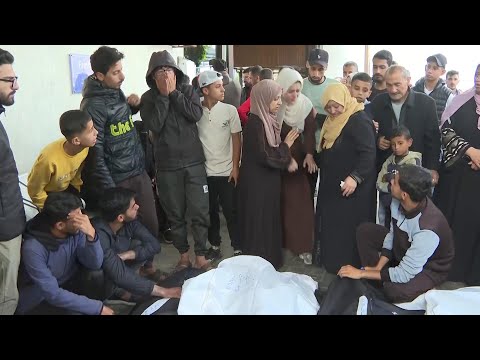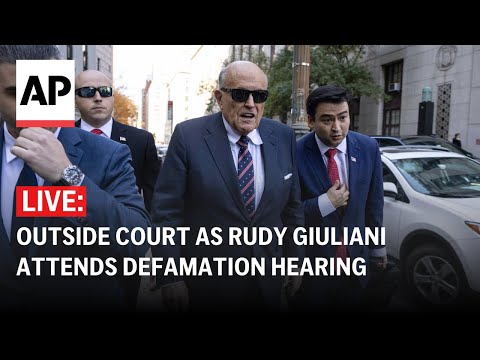(4 Jun 2024)
RESTRICTION SUMMARY:
ASSOCIATED PRESS
Chicago – 4 June 2024
1. SOUNDBITE (English) Larry Snelling, Chicago Police Superintendent:
"We want to make sure that our officers are prepared to police constitutionally, and deal with large scale protests. The training is designed to help the officer understand that we need to de-escalate, be proactive to prevent the possibility of violence, of vandalism."
++SOUNDBITES SEPARATED BY WHITE FLASH++
2. SOUNDBITE (English) Larry Snelling, Chicago Police Superintendent:
"We are also preparing for worst case scenarios just in case things go badly. If people show up and they want to act out violently, or they want to commit acts of vandalism."
++SOUNDBITES SEPARATED BY WHITE FLASH++
3. SOUNDBITE (English) Larry Snelling, Chicago Police Superintendent:
"Our mass arrest policy is in place, just in case. But keep in mind, mass arrests is the last resort. If we don’t have to arrest one person, we don’t want to have to do that, if that’s at all possible. But we know the realities of these types of situations, especially when the number of people we’re expecting to converge upon Chicago is inevitable that there is a possibility for vandalism, there is a possibility for violence, and we’re prepared to deal with that."
++SOUNDBITES SEPARATED BY WHITE FLASH++
4. SOUNDBITE (English) Kimberly Cheatle, U.S. Secret Service Director:
"Our focus is to ensure that we cover off on all the potential challenges that we may face during this event and, make sure that we are fully prepared for it. And I do believe that we are."
++ENDS ON SOUNDBITE++
STORYLINE:
Chicago Police Superintendent Larry Snelling is touting the nation’s second-largest police department as fully prepared for protests ahead of the Democratic National Convention, including on a new mass arrest policy.
City and federal law enforcement agencies have been planning for more than a year for the convention in August that is expected to draw an estimated 50,000 visitors and massive protests.
Proposed changes to the way Chicago police deal with mass arrests include more supervisor review during mass arrests and debriefings afterward to see what worked and what didn’t.
The policy still requires public comment.
Chicago police have received fresh de-escalation training, while about 3,000 officers are undergoing specialized training to “respond directly to civil unrest and the possibility of riots,” according to Snelling.
Proposed changes to the way police deal with mass arrests, which are still being finalized, include more supervisor review onsite and debriefings afterward to see what worked and what didn’t.
“Mass arrest is a last resort,” Snelling said. “But we know the realities of these types of situations, especially when the number of people we’re expecting to converge upon Chicago is inevitable that there is a possibility for vandalism. There is a possibility for violence, and we are prepared to deal with that.”
More than 50 organizations plan to protest in Chicago, which has denied permits for demonstrations near the United Center convention site. That has sparked lawsuits and groups vowing to march whether or not they have permits.
The department has been in the spotlight for its handling of large-scale events.
Cheatle was expected to tour convention venues this week in Chicago and Milwaukee, which will host the Republican National Convention in July.
AP video shot by Teresa Crawford
===========================================================
Find out more about AP Archive: http://www.aparchive.com/HowWeWork
Twitter: https://twitter.com/AP_Archive
Facebook: https://www.facebook.com/APArchives
Instagram: https://www.instagram.com/APNews/
You can license this story through AP Archive: http://www.aparchive.com/metadata/youtube/a6dc4b60b06a4438a2fe78af9371fa0b

